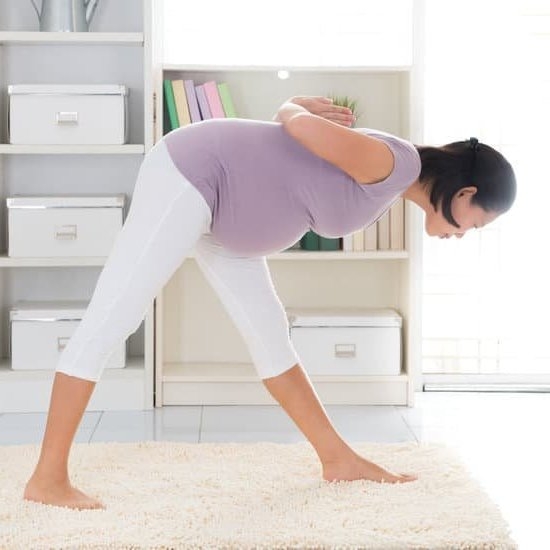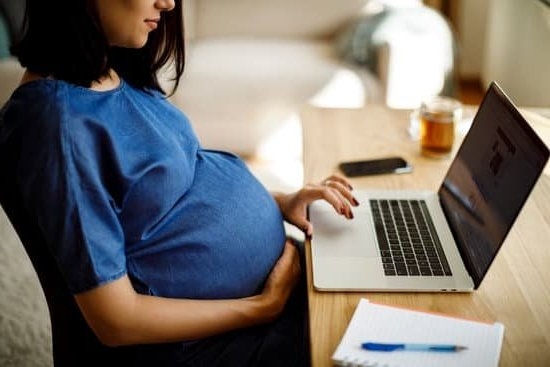Positive Signs Of Pregnancy
There are many positive signs of pregnancy that can indicate that a woman is expecting. While some of these signs may be experienced by women who are not pregnant, when they occur in combination, they can be a strong indication that a woman is pregnant.
One of the most common signs of pregnancy is a missed period. When a woman misses her period, it is usually the first indication that she is pregnant. Other common signs of pregnancy include nausea and vomiting, changes in breast size and sensitivity, and fatigue. Often, women will also experience a heightened sense of smell or a metallic taste in their mouth.
Pregnancy tests are a common way to determine if a woman is pregnant. These tests use a urine sample to detect the presence of the hormone hCG, which is produced during pregnancy. Home pregnancy tests are available over the counter and are very accurate. If a woman suspects she may be pregnant, she should take a home pregnancy test. If the test is positive, she should see a doctor for confirmation.
If a woman is pregnant, she will need to see a doctor for prenatal care. During prenatal care, the doctor will monitor the woman’s health and the development of the baby. The doctor will also provide information on diet, exercise, and other things that the woman can do to ensure a healthy pregnancy.
When Pregnancy Test Positive
Congratulations! If you are reading this, it means that the pregnancy test you just took was positive. Now what
First, take a deep breath and relax. This is an exciting time and there are a lot of things to do in preparation for your baby, but you don’t need to do it all at once. Just take things one step at a time.
The first thing you should do is make an appointment with your doctor. Even if you are early in your pregnancy, it’s important to start getting regular prenatal care. Your doctor will be able to answer any questions you have and help you get started on a prenatal vitamin regimen.
You will also want to start thinking about what you need for your baby. Do you need a crib A stroller A car seat Start compiling a list and budgeting for these items.
You will also want to start thinking about your birth plan. Do you want to have a home birth or delivery in a hospital What kind of pain relief do you want These are all important questions to ask and discuss with your doctor.
Finally, start telling your family and friends the good news! They will want to start planning to help out with the baby once he or she arrives.
Enjoy this exciting time!
I Got A Positive Pregnancy Test Now What
So you got a positive pregnancy test result – congratulations! But what do you do now First, take a deep breath and relax. This is an exciting time, but it can also be a little overwhelming. Here are some tips to help you navigate the next few months:
1. Make an appointment with your doctor.
Your doctor will be able to provide you with information about prenatal care and answer any questions you may have.
2. Start taking prenatal vitamins.
Prenatal vitamins are important for the development of your baby.
3. Make some lifestyle changes.
Now is the time to start eating healthier and getting more exercise. This will help ensure a healthy pregnancy.
4. Start thinking about your baby’s nursery.
Decorating the nursery is a fun way to get excited for your baby’s arrival.
5. Tell your family and friends.
It’s always fun to share the good news with those closest to you.
6. Start planning for your baby’s arrival.
There are a lot of things to think about when you’re expecting a baby, such as childcare, budgeting, and preparing your home. Don’t worry, though – you don’t have to do it all at once. Take things one step at a time and you’ll be ready for your little one before you know it.
First Response Positive Pregnancy Test
Congratulations! You have just received confirmation that you are pregnant. Pregnancy is an amazing experience that will change your life in innumerable ways. This guide will provide you with information on everything from prenatal care to childbirth to postpartum care. It is important to remember that every pregnancy is different, so please consult your doctor for specific advice.
Pregnancy is divided in to three trimesters. The first trimester is the most critical, as it is when the baby’s organs are formed. During the second trimester, the baby’s body starts to grow. The third trimester is when the baby gains weight and prepares for birth.
The most common symptoms of pregnancy are nausea and vomiting, which are known as morning sickness. Morning sickness usually starts around the sixth week of pregnancy and ends by the fourteenth week. Other common symptoms include fatigue, breast tenderness, and frequent urination.
It is important to start prenatal care as soon as possible. Prenatal care includes regular checkups with your doctor, blood tests, and ultrasound scans. It is also important to eat a healthy diet and to get plenty of exercise.
The most common complication of pregnancy is preterm labor. Preterm labor is labor that begins before 37 weeks of gestation. It can cause serious health problems for the baby, so it is important to seek medical attention if you think you are experiencing preterm labor.
The most common complication of childbirth is labor that lasts more than 20 hours. This is known as prolonged labor. Prolonged labor can cause problems for the baby, so it is important to seek medical attention if you are experiencing prolonged labor.
The most common complication of postpartum care is postpartum hemorrhage. Postpartum hemorrhage is excessive bleeding after childbirth. It can cause serious health problems for the mother, so it is important to seek medical attention if you are experiencing postpartum hemorrhage.
Early Positive Salt Pregnancy Test
In the early weeks of a pregnancy, a woman’s body produces a hormone called human chorionic gonadotropin (hCG). This hormone is produced by the cells that will form the placenta and is the earliest detectable sign of pregnancy. A qualitative hCG test, also called a pregnancy test, detects the presence of hCG in a woman’s urine. A positive result on a qualitative hCG test means that hCG has been detected in the urine and that the woman is likely pregnant.
A positive hCG test is not a guarantee of a healthy pregnancy, but it is a strong indication that a woman is pregnant. A positive hCG test should be confirmed with a follow-up ultrasound to make sure the pregnancy is progressing normally.

Welcome to my fertility blog. This is a space where I will be sharing my experiences as I navigate through the world of fertility treatments, as well as provide information and resources about fertility and pregnancy.





